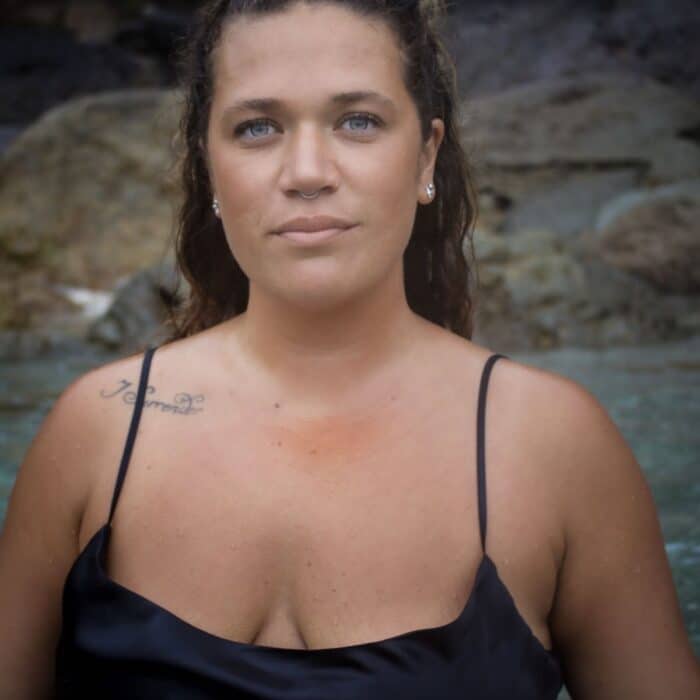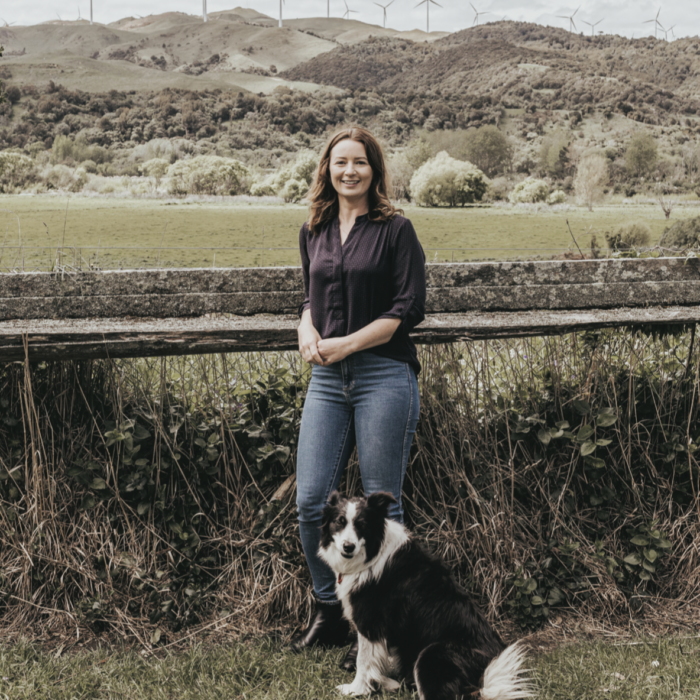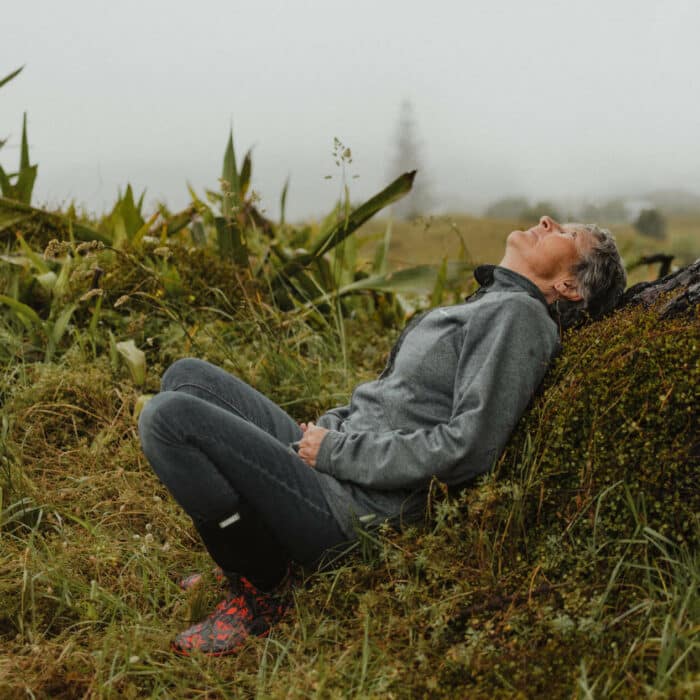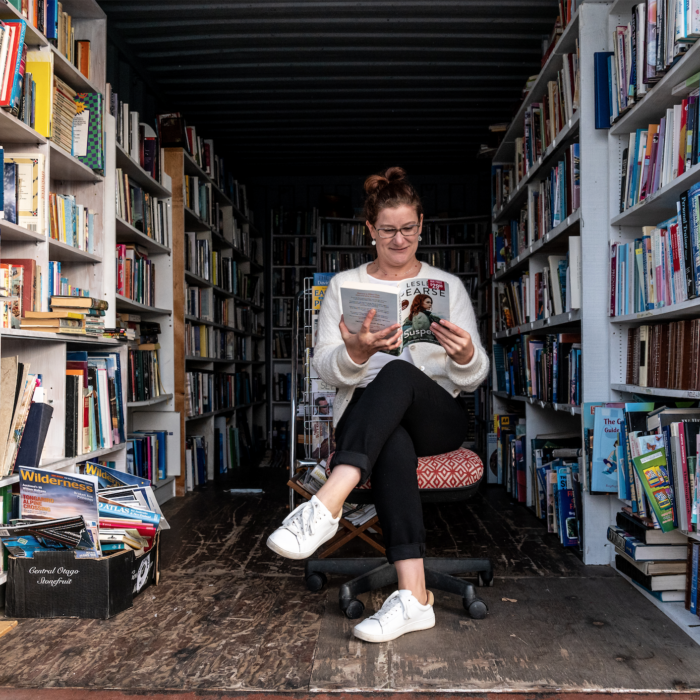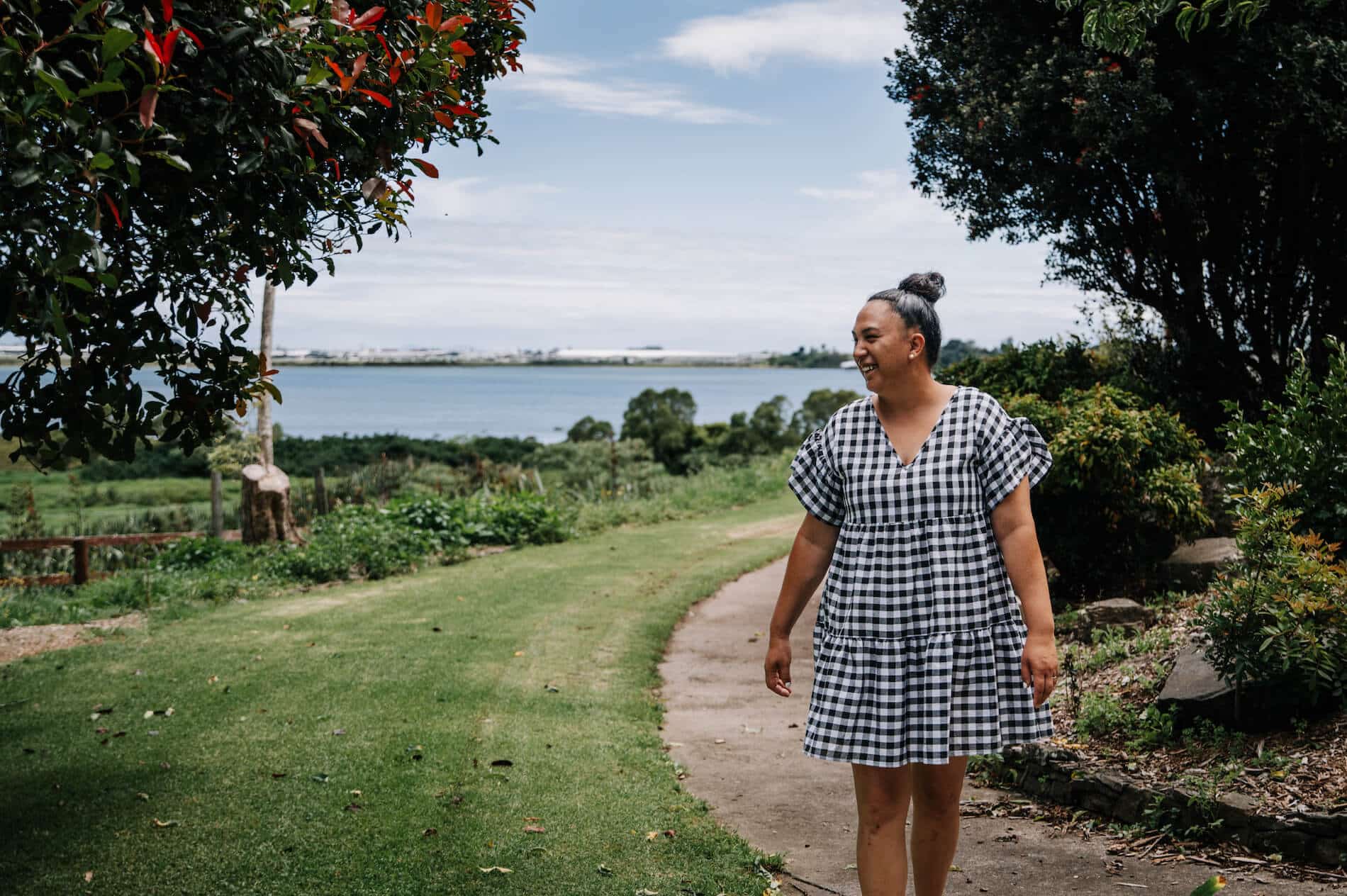
I live in the beautiful paradise of Matapihi with my four children and my lovely partner; we’re based at his family homestead next to Hungahungatoroa Marae. I’m all about kaitiakitanga and creating a safe space for our whānau and our community, and I’m grateful to be entrusted to do that through Hungahungatoroa Club.
We came back from Australia four years ago – we’d been living in Sydney since 2007. We went over when we were young and ready to see new things and experience a different way of life. What it definitely did was help us appreciate how blessed we are and make us feel grateful for our culture and where we come from. We had our second and third babies over there. Now we’re home, it’s like we never left.
We knew that coming home would mean stepping up to support our whānau. A lot of our family – especially our ahi kā whānau – they’re getting tired. They’ve been holding the fort for many years and it’s time for the younger generation to step up into that succession path. We woke up the day after we got home and our aunties were all lined up along the fenceline with a folder, saying, “Here you go, here’s all the mahi that needs to be done.”
Unbeknownst to me, I’d actually been preparing for this my whole life. I was born and bred in Rotorua, and we spent all our holidays and weekends on the pā with my mum’s sister, Auntie Rose. We learned a lot about pā life, growing up with all our cousins before we moved to Tauranga when I was a teenager.
My mum and dad have always been those real givers – they just give unconditionally and were always taking in other people’s kids growing up. And then most of my career has been in hospitality, which helped me to move my hands and get the mahi done, you know?
I got appointed to the executive committee for the marae but it was always my intention to start managing the club. We have three entities: our marae, the club and a hauora facility. The club has been struggling for over twenty years, to the extent that it has actually been funded by the marae.
The whenua at the club is leased from the marae and it’s surrounded by papakāinga and kuia and kaumātua flats, so it really is the centre of our community. There are maybe six or seven whānau who frequent the club and they’ve really kept it alive – and I’m talking about big, extended whānau.
I could see the potential in the club. We’re here in paradise, we have beautiful facilities, and look at our people! They’re loyal and beautiful and I could see that if we took all of those elements and incorporated some business acumen, we could turn it around. So that’s what I did.
To begin with, I just started running the bistro, not the bar, and I just observed. I didn’t want to come in and shake things up straight away. I listened to what whānau were saying and got their feedback and came to the realisation that they did want change – they just didn’t know how or when to do it. That made it a lot easier for me to start that momentum and transition the club into a whānau space, where our kids can be involved and we can have our old people and young ones in the same space.
The club has always had a strong drinking culture – it was actually originally created as a space for our whānau to do that away from the marae. And that was fine for previous generations, but now whānau are looking for something different.
I’ve spent the past couple of years prepping our whānau to transition more into a tamariki hauora space and utilise the space in a more positive way that focuses on our tamariki and our rangatahi and their growth. We’re still a club and we still have a licence, but we also hold events throughout the week and use the venue as a multi-functional space.
And it has worked. The initial drive to get it to sustainability is paying off. It is a lot of work and a lot of the time I’m doing it for aroha, but there is gratitude in abundance from our whānau. And my kids are learning so much being here, they are just flourishing in ways that I can’t even explain. They feel strong, they have a lot of mana, they know who they are.
Sometimes I worry that I’m too busy and I say to my kids, “I love you guys the most, and I’m doing all of this for you.” That’s what it’s about for me – the type of people my children are growing up to be.
Glossary. Ahi kā, literally ‘home fires’, refers to the people who visibly occupy and make use of the land. Aroha, love. Hauora, wellbeing. Kaitiakitanga, guardianship. Kaumātua, elder, older person of status. Kuia, female elder. Mahi, work. Mana, prestige, essence of the atua (gods), inherited at birth. Marae, meeting house and surrounding complex. Pā, fortified village. Papakāinga, ancestral home of a kinship group, or housing development for Māori on their own land. Rangatahi, youth. Tamariki hauora, children’s wellbeing. Whānau, family. Whenua, land.
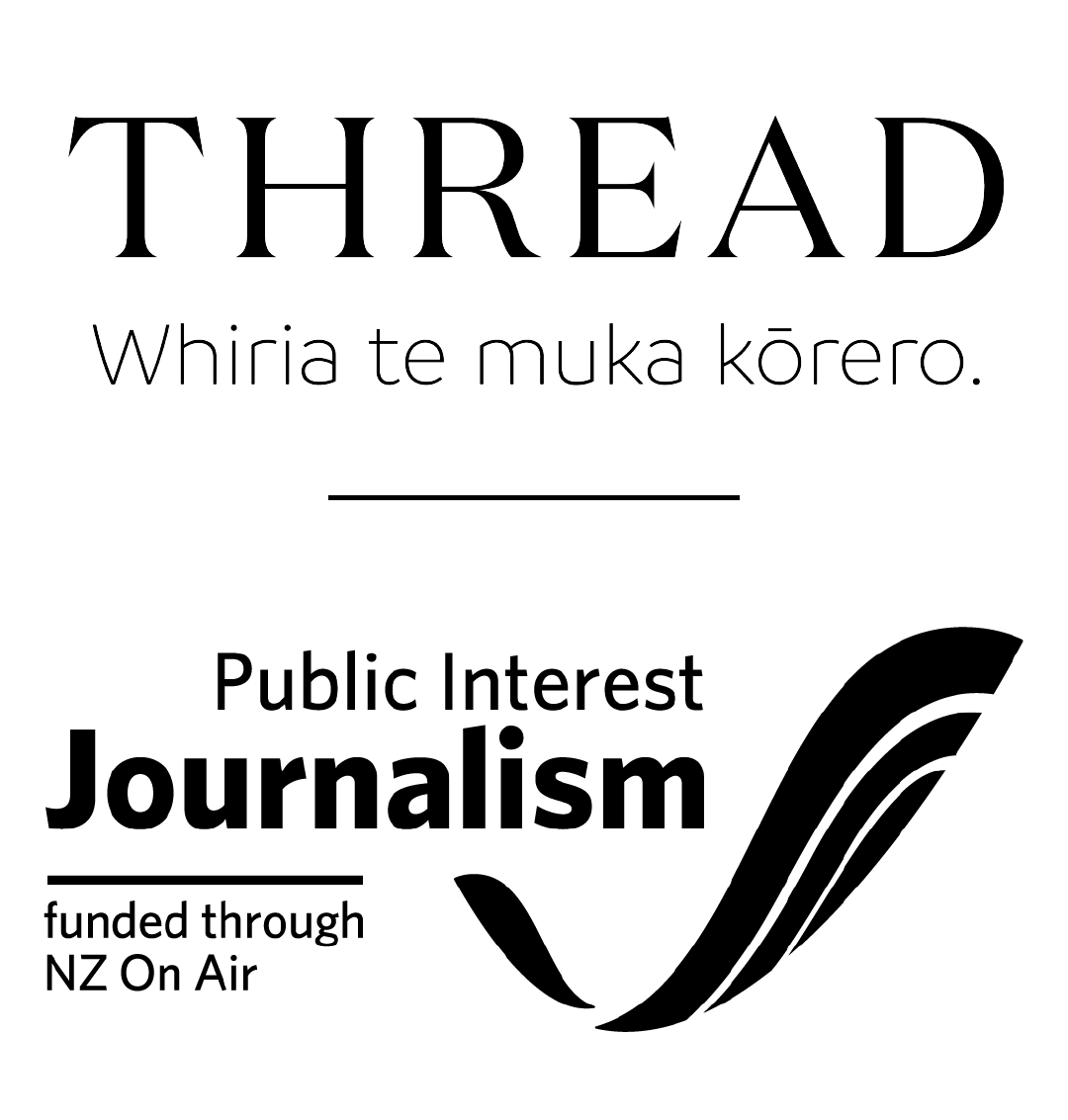
This story is part of THREAD, a year-long project by Shepherdess made possible thanks to the Public Interest Journalism Fund through NZ On Air.
Related Stories
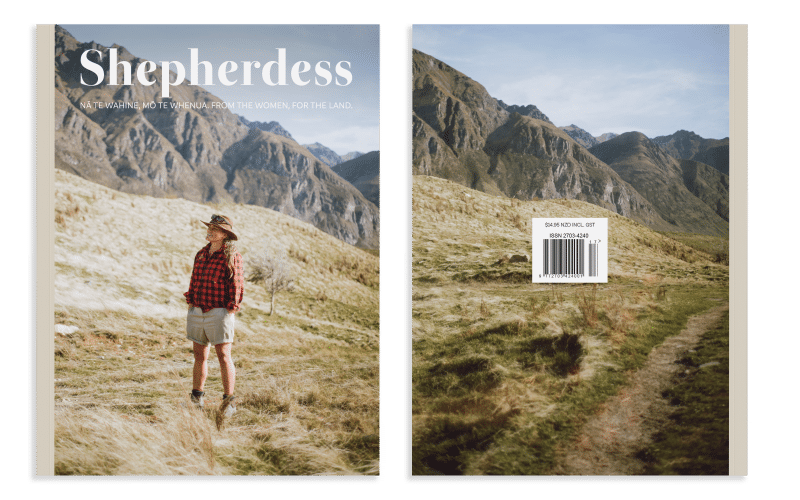
Out Now
Seventeenth Edition
Our beautiful Ngahuru Autumn 2024 Edition is out now!
